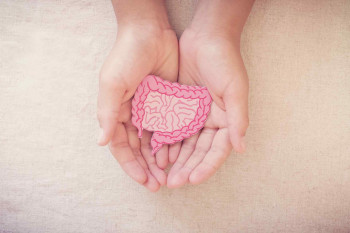Boosting Memory and Concentration: Simple Techniques to Try
In today's fast-paced world, it's becoming increasingly important to have a sharp memory and strong focus to keep up with the demands of daily life. Whether you're a student preparing for exams, a professional striving for productivity, or simply looking to enhance your cognitive abilities, there are simple techniques you can incorporate into your routine to boost memory and concentration.
In this blog, we will explore effective strategies that can help improve your cognitive function, including lifestyle changes, mental exercises, and dietary adjustments. By implementing these techniques, you can unlock your brain's full potential and enhance your overall cognitive performance.
Get Sufficient Sleep
Sleep plays a crucial role in memory consolidation and cognitive functioning. Lack of sleep can impair your memory and attention span. To boost your memory and concentration, aim for 7-9 hours of quality sleep each night. Establishing a consistent sleep schedule, creating a comfortable sleep environment, and avoiding electronic devices before bed can improve the quality of your sleep.
Exercise Regularly
Physical exercise not only benefits your body but also your brain. Engaging in regular aerobic exercise promotes the growth of new brain cells and improves memory and cognitive abilities. Incorporate activities such as walking, jogging, swimming, or dancing into your routine for at least 30 minutes a day.
Practice Mindfulness and Meditation
Mindfulness and meditation techniques can enhance focus, attention, and memory. Take a few minutes each day to sit quietly and focus on your breath. This practice can help calm the mind, reduce stress, and improve concentration. Guided meditation apps or classes can be helpful for beginners.
Use Mnemonic Devices
Mnemonic devices are memory aids that help you remember information more effectively. Techniques such as acronyms, visualization, and chunking can be utilized to organize and retain information. For example, creating an acronym for a list of items or visualizing a vivid mental image can aid in memory recall.
Break Tasks into Smaller Chunks
When faced with complex tasks or information overload, breaking them into smaller, manageable chunks can improve concentration and memory. Focus on one task at a time, and allocate specific time intervals for each chunk. This approach helps prevent cognitive overload and enhances productivity.
Engage in Brain-Boosting Activities
Engaging in activities that stimulate the brain can enhance memory and concentration. Puzzles, brain games, reading, learning a new skill, or playing a musical instrument are excellent options. These activities challenge the brain and promote neuroplasticity, strengthening cognitive abilities.
Maintain a Healthy Diet
A nutritious diet can have a significant impact on brain health. Include foods rich in omega-3 fatty acids, antioxidants, and vitamins in your diet. Blueberries, fatty fish, nuts, seeds, dark chocolate, and green leafy vegetables are known to support brain function. Stay hydrated and limit the consumption of processed foods and sugary drinks.
Stay Socially Engaged
Social interaction stimulates the brain and supports cognitive function. Engage in conversations, participate in group activities, or join clubs and organizations. Interacting with others provides mental stimulation and can help maintain memory and concentration.
Conclusion
Improving memory and concentration is within everyone's reach. By incorporating these simple techniques into your daily routine, you can enhance your cognitive abilities and optimize your brain's performance. Remember to prioritize sufficient sleep, exercise regularly, practice mindfulness, use mnemonic devices, break tasks into smaller chunks, engage in brain-boosting activities, maintain a healthy diet, and stay socially engaged.
Experiment with these techniques to find the ones that work best for you. With persistence and consistency, you'll be on your way to a sharper memory and improved concentration, leading to greater success in all areas of life.
FAQs (Frequently Asked Questions) on Boosting Memory and Concentration:
How long does it take to see improvements in memory and concentration?
The timeframe for seeing improvements in memory and concentration can vary from person to person. Some techniques, such as getting sufficient sleep and maintaining a healthy diet, can yield noticeable results within a few weeks. However, the effectiveness of other techniques, such as meditation and brain-boosting activities, may take longer to manifest. Consistency and patience are key factors in achieving long-term improvements in cognitive function.
Are there any specific foods that can enhance memory and concentration?
While no single food can guarantee a remarkable boost in memory and concentration, certain foods have been associated with cognitive benefits. Foods rich in omega-3 fatty acids (e.g., fatty fish, walnuts), antioxidants (e.g., blueberries, dark chocolate), and vitamins (e.g., leafy green vegetables) are believed to support brain health. Incorporating these foods into a balanced diet can contribute to overall cognitive well-being.
Can meditation really improve memory and concentration?
Meditation has been shown to have positive effects on memory and concentration. Regular meditation practice can help calm the mind, reduce stress, and enhance focus and attention. By training the mind to stay present and avoid distractions, meditation cultivates a state of mindfulness that can benefit cognitive function. However, it is important to note that meditation is a skill that requires consistent practice to observe significant improvements.
Are there any age limitations for implementing these memory-boosting techniques?
These memory-boosting techniques can be beneficial for individuals of all ages. Whether you are a student, a working professional, or a senior looking to maintain cognitive vitality, these techniques can be tailored to your specific needs. It's never too late to start incorporating healthy habits and brain-stimulating activities into your routine to support memory and concentration.
Do memory-enhancing supplements or brain-training apps really work?
The effectiveness of memory-enhancing supplements and brain-training apps is a topic of ongoing debate among researchers. While some supplements may claim to improve memory and concentration, their effects can vary, and it is crucial to consult with a healthcare professional before taking any supplements. Similarly, brain-training apps may offer engaging activities, but their impact on long-term cognitive function is still being researched. It's important to approach such supplements and apps with a critical mindset and consider them as potential aids rather than standalone solutions.

























